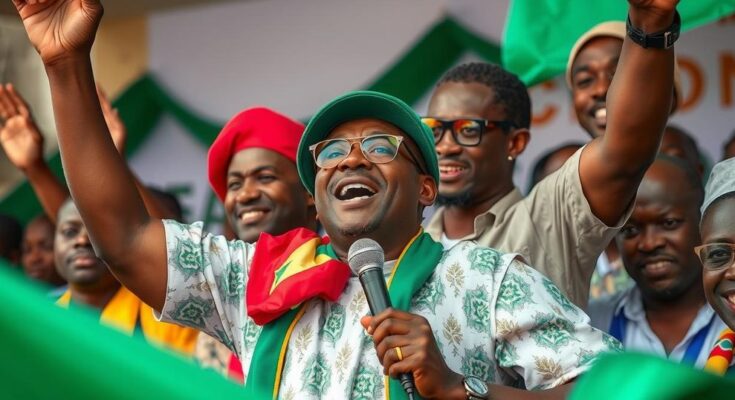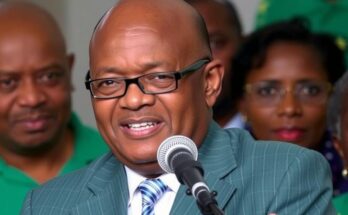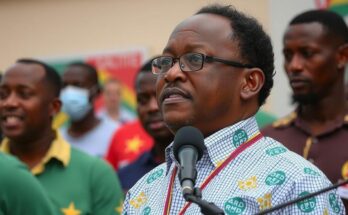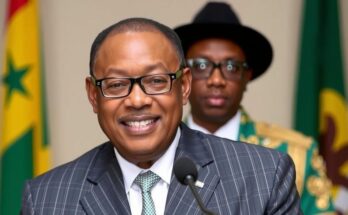Ghana’s opposition party, NDC, claims victory for candidate John Mahama in the recent presidential election, reporting he secured 56.3 percent of the vote against incumbent NPP candidate Mahamudu Bawumia. The election highlighted economic challenges facing the nation, including high inflation and a significant IMF bailout. Despite some violence reported, voting proceeded mostly peacefully, with the official results pending from the electoral commission.
Ghana’s opposition party, the National Democratic Congress (NDC), has announced its candidate, John Mahama, as the presumed victor of the recent presidential election held over the weekend. Although the country’s electoral commission has yet to finalize official results, preliminary figures suggest Mahama secured approximately 56.3 percent of the vote, outpacing the ruling New Patriotic Party (NPP) candidate, Vice President Mahamudu Bawumia, who garnered about 41.3 percent. The election was largely viewed through the lens of Ghana’s struggling economy, which has been significantly affected by high inflation and a recent $3 billion bailout from the International Monetary Fund (IMF).
The election officially aimed to elect a successor for President Nana Akufo-Addo, who is concluding his term after serving the maximum allowable eight years. Political activity during the election included reporters receiving updates from NDC spokesman Sammy Gyamfi, who stated, “It is very clear the people of this country have voted for change.” There have been reports of casualties, with one fatal incident in the north and another in the central region, although the voting process was largely peaceful.
Ghana has a longstanding tradition of democratic governance, with alternating power between the two primary political parties, the NDC and NPP, since the reinstatement of multi-party elections in 1992. Despite economic challenges, Vice President Bawumia’s campaign utilized the slogan “Break the 8” to seek a third consecutive term for the NPP, which would be unprecedented. Though inflation has decreased from over 50 percent to approximately 23 percent, economic issues remain a significant concern for many voters, thus providing a viable opportunity for Mahama’s return after previous failures in his earlier presidential aspirations.
The political landscape in Ghana has been defined by the alternation of power between the National Democratic Congress (NDC) and the New Patriotic Party (NPP) since the re-establishment of multi-party politics in 1992. Ghana’s economy has faced multiple challenges, including debt defaults, currency devaluation, and soaring inflation, necessitating an IMF bailout in recent years. The presidential election primarily reflects voter dissatisfaction with the current administration’s handling of economic issues, fostering a competitive atmosphere for the candidates involved, particularly John Mahama of the NDC.
In conclusion, the Ghanaian presidential election results have prompted the NDC to declare John Mahama the victor based on preliminary counts amid ongoing verification by the electoral commission. The election has been characterized by economic discontent and a desire for change among the electorate, marking a potential shift in political control depending on the final official results.
Original Source: www.france24.com




